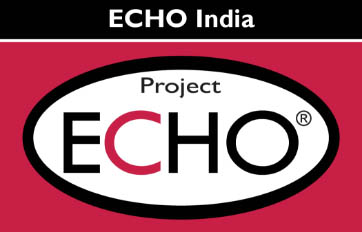With its widespread outbreak across several regions and multiple countries, mpox, previously called monkeypox, has been declared a public healthcare emergency of international concern by the World Health Organization (WHO). According to the Centers for Disease Control and Prevention (CDC), 80,000+ mpox cases have been reported globally in 110 countries since January 1, 2022. [1]
Globally, 10 countries have been most affected by the mpox virus, namely, the United States (28,971), Brazil (9,844), Spain (7,405), France (4,104), the United Kingdom (3,720), Colombia (3,719), Germany (3,672), Peru (3,408), Mexico (3,145), and Canada (1,449), and together account for 86.1% of the cases reported globally. [2]
India also reported its first case of mpox in July 2022 and has recorded nineteen (19) cases so far across Delhi and Kerala, including one death. The spread in India has been traced to international travelers from regions like North America and Europe. [3]
Mpox outbreak sparked concern at a time when world is still fighting the impact of COVID-19, which posed a huge challenge to our healthcare infrastructure. In its quest to fight the swift transmission rate of COVID-19, Indian healthcare system soldiered tirelessly and therefore underwent a significant evolution over the last couple of years. However, structural problems observed during the pandemic highlighted the need for capacity building for our healthcare professionals. The need for capacity building was felt more acutely for Community Healthcare Workers (CHWs), specifically to expand their medical knowledge as well as soft skills, to empower them for effective delivery of routine or even contingent healthcare services.
Like COVID-19, mpox is also transmissible and spreads due to close and prolonged physical or direct contact with body fluids or lesions. The virus may also spread through face-to-face contact from an infected person's mouth or nose in the form of small respiratory droplets, and even through contaminated surfaces. However, the incubation of the virus takes about one week to 15 days. This means that an infected person can isolate themselves to avoid the spread of the disease, which will only happen once the person becomes symptomatic. [4]
Public health agencies across the world are still evaluating the lethality and severity of the virus. Many countries failed to control the spread despite the fact that mpox virus originated in the 1970s and has been around for a while now. However, many nations including India have never experienced its outbreak in the past. While the COVID-19 pandemic is not over yet, only timely and strategized measures can prevent another widespread outbreak of another infectious disease like mpox.
According to medical experts, the discontinuation of the smallpox vaccination might have helped in the resurgence of mpox cases, since the smallpox vaccine is 85% effective in preventing mpox. [5] Therefore, there is an urgent need to evaluate the benefits of restarting smallpox vaccination for people below 45 years of age to safeguard against any large-scale outbreak.
Learning from the COVID-19 pandemic and mpox outbreak, the Indian healthcare system needs stronger infrastructure to facilitate and support risk assessment, effective disease surveillance as well as capacity building of healthcare professionals. Public health organizations and authorities across the country also need to join hands to build a robust and resilient health system, which is ready to tackle any challenge thrown at us by future outbreaks of an existing or novel highly infectious zoonotic disease.
Dr. Sandeep Bhalla is a seasoned public health specialist and is working with ECHO India as Associate Vice President. Dr. Bhalla earned his MBBS from the Armed Forces Medical College (AFMC) Pune and MD, DNB in Community Medicine. With around 20 years of experience in the public health arena, he regularly shares his insights on public health topics and has over 50 articles published in national and international journals.
Sources and Citations -
